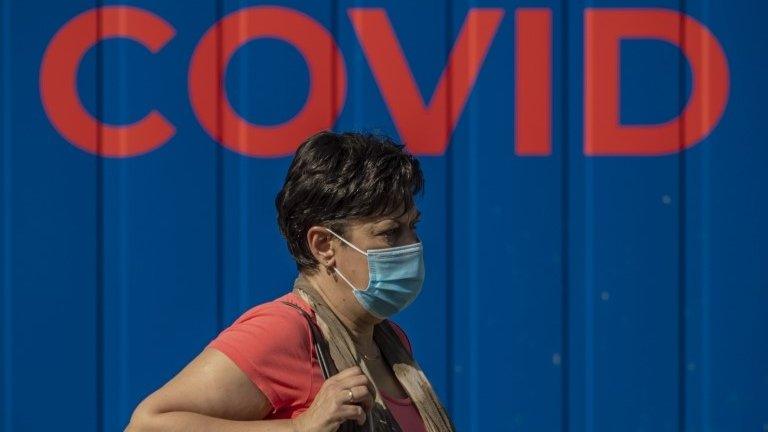Coronavirus: French police raid ministers' homes in pandemic inquiry
- Published
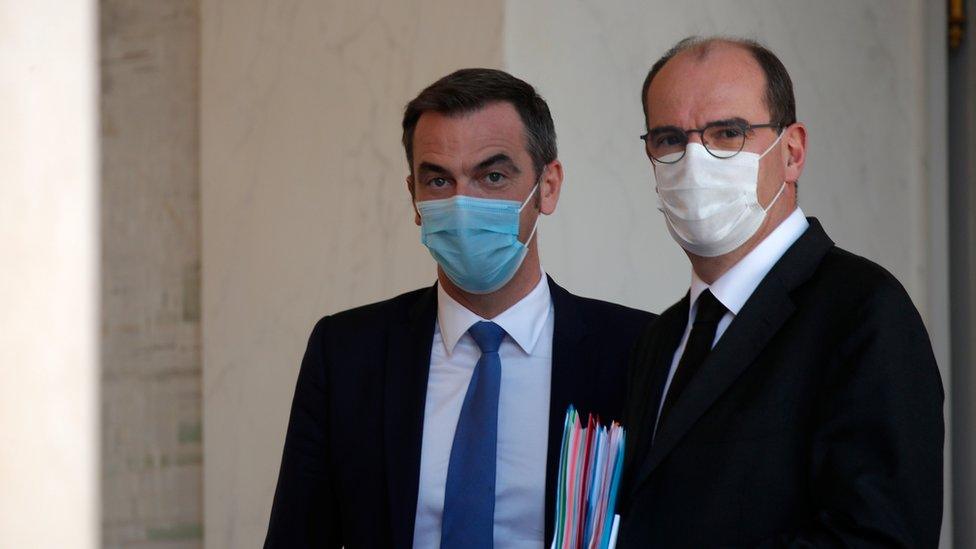
Health Minister Olivier Véran (L) and Prime Minister Jean Castex are reportedly under investigation
French police have raided the homes of senior government and health officials as part of an investigation into their handling of the coronavirus pandemic.
Health Minister Olivier Véran and the director of the national health agency, Jérôme Salomon, are among those whose properties were searched on Thursday.
The raids came after a court launched an inquiry earlier this year into the government's handling of the pandemic.
It has faced criticism over shortages of equipment and slow response times.
Prime Minister Jean Castex is also under investigation, French media report, as is his predecessor Edouard Philippe and Mr Véran's predecessor Agnès Buzyn.
The prime minister and Mr Véran have been at the forefront of France's new policy of imposing night-time curfews in nine cities, including Paris, from Saturday, which will be enforced by 12,000 police.
"This means at 21:00 everyone must be at home and, without exception, every place, business or public service open to the public will be shut," Mr Castex said on Thursday.
In July, the court launched the inquiry into the government's handling of the pandemic after members of the public, including doctors and relatives of victims, alleged that it had been criminally negligent in its response to Covid-19.
The special court hears cases of alleged wrongdoing by ministers and other government officials in the course of their duties.
But for the claims to be substantiated, there would have to be evidence that officials knowingly failed to take obvious steps that would have saved lives.
Emmanuel Macron said the curfew would last for four weeks but could be extended
At a news conference on Thursday, Prime Minister Castex said he had "absolute" confidence in both Mr Véran and Mr Salomon.
How bad is the situation in France?
A further 22,951 cases of Covid-19 were confirmed on Wednesday. "We have to act. We need to put a brake on the spread of the virus," Mr Macron said in a television address.
The president added that this wave of Covid-19 was different to the outbreak in the spring because the virus had spread to all parts of France.
France managed to control the first outbreak by introducing a national lockdown.
It then opened bars and restaurants in the summer, and allowed foreign tourists to visit as part of an effort to boost the ailing economy. Schools reopened and universities began teaching classes in person in early autumn.
But since August the number of reported cases has accelerated quickly.
Wednesday was the third time in six days that France reported more than 20,000 new infections. Mr Macron said the new measures aimed to reduce daily cases to around 3,000.
As with the first wave of Covid-19, there is concern that hospitals and intensive care units will become overwhelmed with patients.
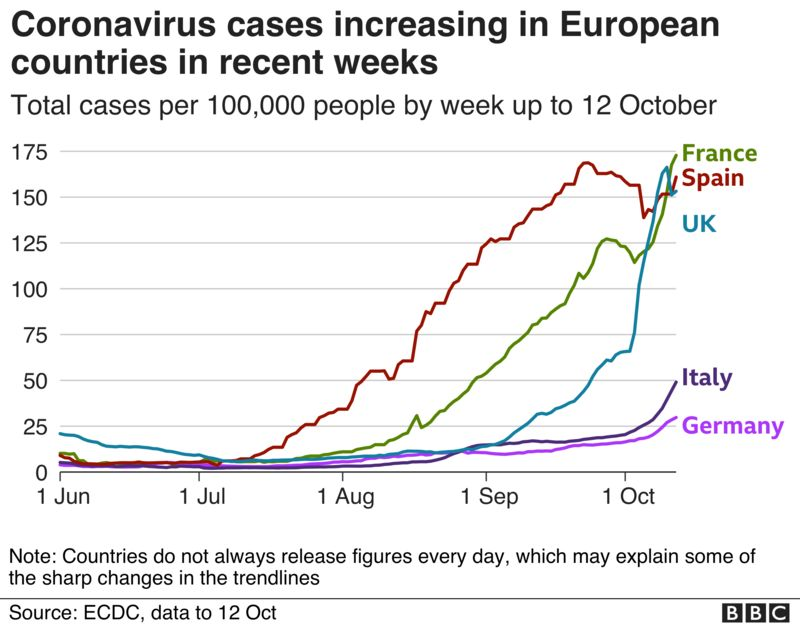

What are the new measures there?
The curfew, from 21:00 to 06:00, will apply for at least four weeks to Paris and its suburbs as well as Marseille, Lyon, Lille, Saint-Etienne, Rouen, Toulouse, Grenoble and Montpellier.
Affecting around 22 million people, it will be applied for four weeks to begin with and Mr Macron's government will seek to extend it to six.
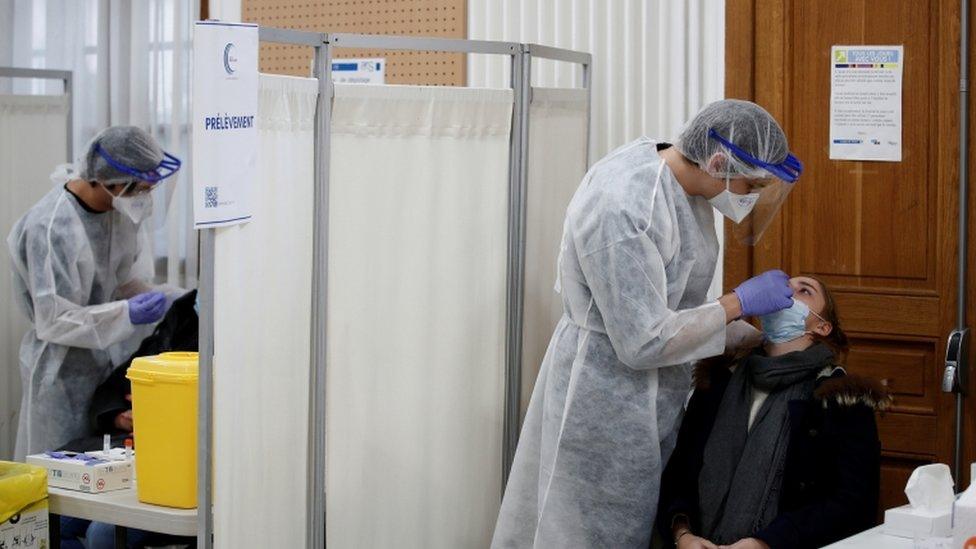
President Macron said the virus has spread to all parts of France now
The measures will stop people visiting restaurants and private homes during the evening and night-time. Private parties will be banned, even in areas not under curfew, from midnight on Friday.
But there is some scepticism over how effective the curfew might be. "People were mainly going out to eat out which they will continue to do... until 9pm," Lou Mielot, a student at the University of Lyon, told the BBC.
"This will create restaurants that are full from 7pm to 9pm, [where people] won't be able to keep a safe distance," she added.
Residents will need a valid reason to be outside their homes during the hours of curfew. President Macron said on Wednesday night he understood a curfew was a "hard" thing to ask people to do.
On Thursday, Mr Castex said travel during hours of curfew was permitted for trips to the hospital or pharmacy, or if work hours required. But a special certificate would need to be produced as proof. Pre-booked tickets for planes and trains that arrive after the curfew will be allowed.
Anyone found breaking the curfew will be fined €135 (£121).
Businesses that suffer financially due to the new measures will be eligible for state aid. Any company with up to 50 staff in the nine cities affected will be eligible for help if their turnover has fallen by over half in the past year.
All companies in curfew areas will be asked to move towards having employees work from home for at least part of the week, and to stagger working hours. President Macron has already suggested "tele-working" for two or three days a week.

A long winter ahead

"We're in the second wave," the president said. For many people his address will have sounded distressingly similar to what he had to say at the start of wave one. Situation dire; hospitals under threat; public failing to get it; action.
Of course there are huge differences. Today we know so much more. We wear masks and get tested. Doctors have better treatments. And another national lockdown - like the one in March - has been ruled out.
But suddenly it feels like we are back where we began. Just as in March, we are warned of a virus that has become rampant and can only be stopped with drastic action. Just as in March, we're told the health system risks being swamped.
People will accept the curfew. What choice do they have? But it feels like the start of a long, miserable winter.


A SIMPLE GUIDE: How do I protect myself?
HOPE AND LOSS: Your coronavirus stories
VIDEO: The 20-second hand wash

- Published3 July 2020
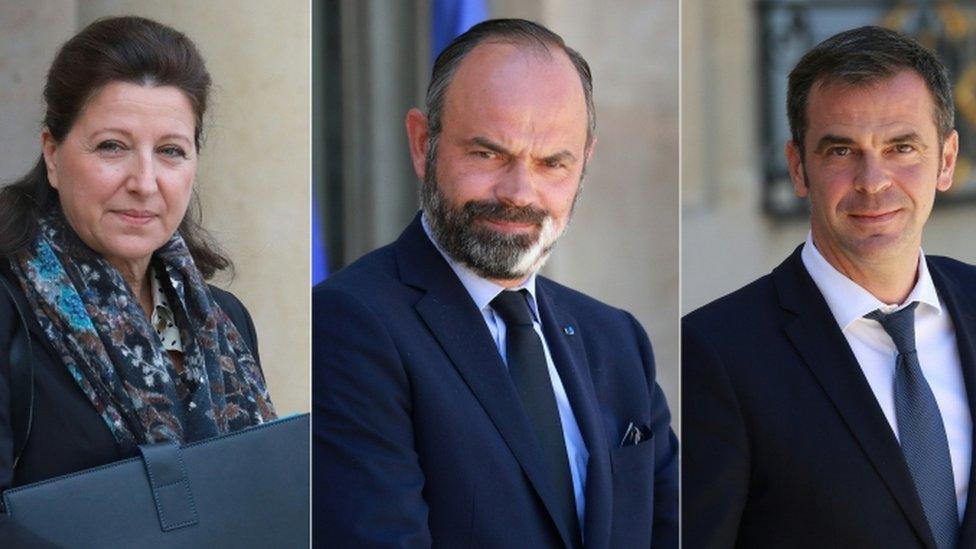
- Published15 October 2020
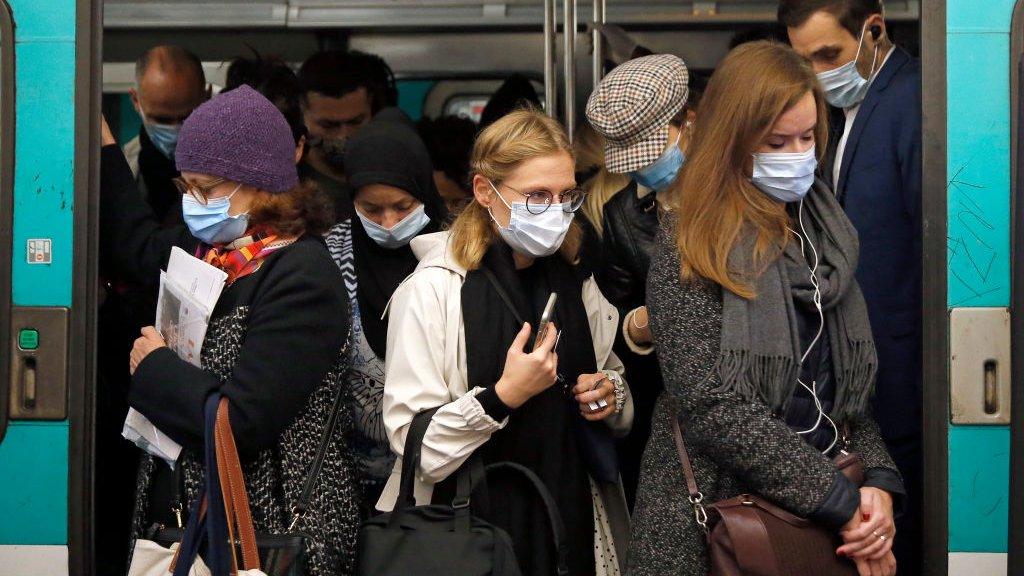
- Published14 October 2020
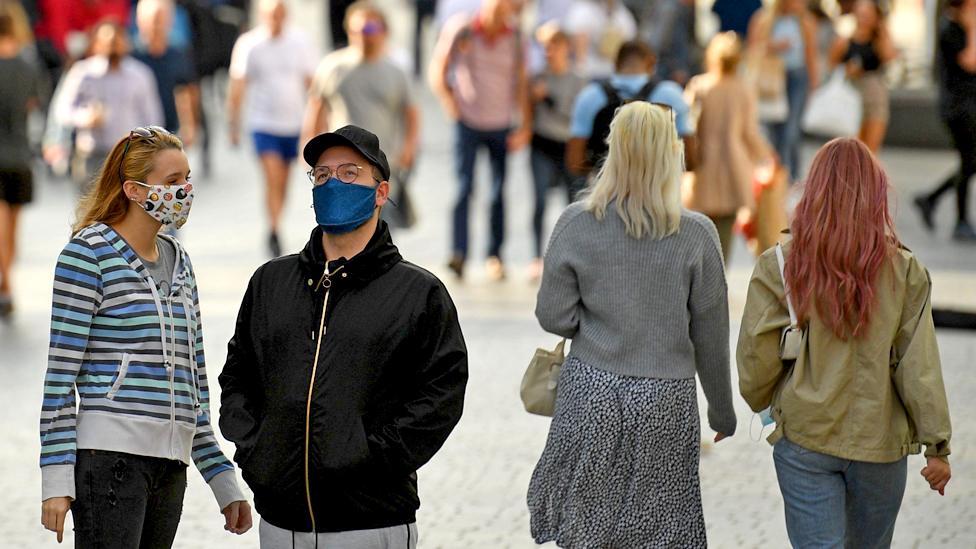
- Published6 October 2020
